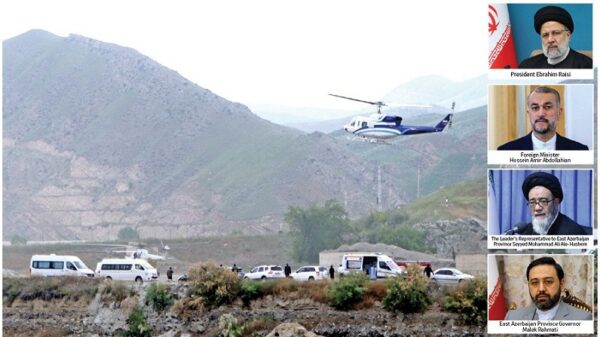ISLAMABAD: Despite an improved global economic situation, the International Monetary Fund has kept Pakistan’s growth forecast for the present fiscal year at 2%, the same as their previous estimation from January. This was a downgrade from their earlier projection of 2.5% growth.
In its latest World Economic Outlook 2024, published on Tuesday, the International Monetary Fund maintained the country’s growth rate at 3.5% for the upcoming fiscal year. In January, the organization had adjusted the current year’s growth rate from 2.5% by decreasing it by 0.5%, and for FY25, it reduced the projection by 0.1% from 3.6%, which was anticipated in October 2023.
These growth estimates are derived from the IMF’s recent quarterly review of Pakistan’s macroeconomic situation, a part of the $3 billion Stand-By Arrangement (SBA). Both parties reached a Staff-Level Agreement on this matter on March 20.
The IMF’s growth projection is slightly higher than the 1.8% forecast made by its Washington-based counterpart, the World Bank, earlier this month. However, it is significantly lower than the government’s 3.5% GDP growth target for the current year. It aligns with the State Bank of Pakistan’s expectation of a 2% to 3% growth rate, which was announced last month as part of the Monetary Policy Statement.
Lender lifts global growth forecast to 3.2pc this year
According to the International Monetary Fund, Pakistan’s average inflation rate is projected to slow down from 29.2% in the previous year to 24.8% this year, and further decrease to 12.7% in FY25. Additionally, the IMF anticipates the current account deficit to increase from 0.7% of GDP in the last fiscal year to 1.1% in the current year, and potentially rise to 1.2% in the following year.
On a positive note, the IMF forecasts a gradual decline in the unemployment rate. It is expected to decrease from 8.5% in FY23 to 8% in the current year and further to 7.5% in the upcoming fiscal year.
Raises global growth
In the World Economic Outlook report, the International Monetary Fund has increased the projected global growth rate for 2024 to 3.2%, which is 0.1% higher than their previous forecast of 3.1% in January and significantly higher than the October forecast of 2.9%. The growth rate is revised up by 0.1 basis points from January and 0.3 basis points from October 2023.
Despite this growth, the pace of expansion remains low compared to historical standards due to various factors, including high borrowing costs and withdrawal of fiscal support in the short term, and long-term effects from the COVID-19 pandemic, Russia’s invasion of Ukraine, weak growth in productivity, and increasing geo-economic fragmentation.
The WEO anticipates that global headline inflation will decrease from an annual average of 6.8% in 2023 to 5.9% in 2024 and further to 4.5% in 2025. Advanced economies are expected to reach their inflation targets sooner than emerging market and developing economies. The latest forecast for global growth in five years (3.1%) is at its lowest in decades, implying a slower pace of convergence towards higher living standards for middle- and lower-income countries, which may contribute to the persistence of global economic disparities, as stated by the IMF.
The International Monetary Fund has recently shared a moderate outlook for the global economy in the coming years, mainly due to slower individual growth rates. This slowdown can be attributed to ongoing structural issues that hinder the mobility of capital and labor to efficient businesses. Additionally, the IMF predicts that economic growth in large emerging markets, such as China, will have a significant impact on their trading partners, considering their growing influence in the global economy.
According to the IMF, the risks to this global outlook are currently balanced. However, they have pointed out potential negative factors, such as new price spikes resulting from geopolitical tensions, like the war in Ukraine and the conflict in Gaza and Israel, which could lead to increased interest rate expectations and reduced asset prices. Furthermore, differing disinflation rates among major economies could cause currency fluctuations and strain financial sectors.
High interest rates could also have a more significant cooling effect than anticipated, as fixed-rate mortgages reset and households face high debt levels, leading to financial stress. In China, the lack of a comprehensive solution for the struggling property sector may cause economic growth to falter, affecting trade partners.
The IMF also highlighted the potential negative impact of high government debt in many economies, where abrupt tax increases and spending cuts could weaken activity, erode confidence, and hinder efforts to reduce risks related to climate change. Moreover, geo-economic fragmentation may intensify, leading to higher barriers for the flow of goods, capital, and people, which could result in a slowdown in supply-side growth.
On a positive note, the IMF suggests that looser fiscal policies than anticipated could boost short-term economic activity, although it might result in more challenging policy adjustments later on. Faster-than-expected declines in inflation due to increased labor force participation could allow central banks to bring forward their easing plans. Additionally, artificial intelligence and stronger-than-expected structural reforms could boost productivity.
The IMF emphasizes the importance of central banks ensuring a smooth descent of inflation by neither easing policies too early nor delaying them excessively, as the global economy approaches a soft landing. As central banks adopt a less restrictive stance, the focus should shift towards implementing medium-term fiscal consolidation to restore budgetary flexibility and prioritize essential investments while ensuring debt sustainability.
Lastly, the IMF underscores the need for international cooperation to mitigate the costs and risks associated with geo-economic fragmentation and climate change, expedite the transition to green energy, and facilitate debt restructuring.










